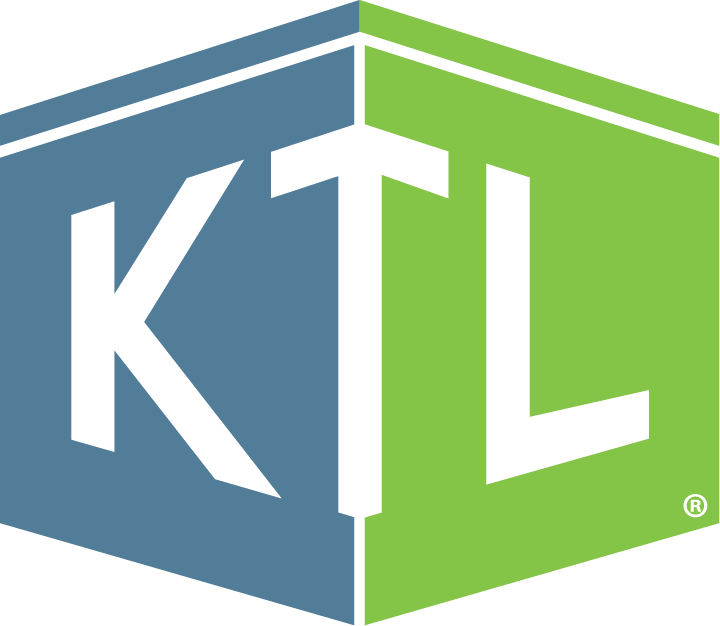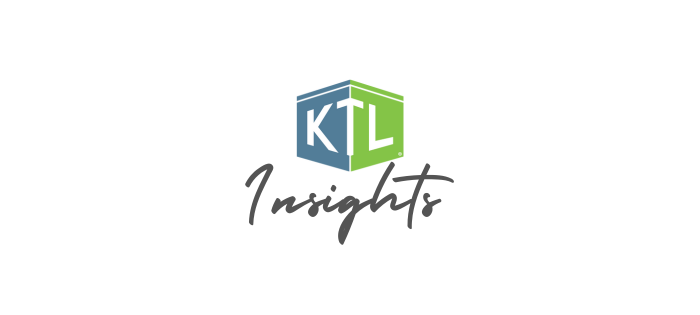
Comments: No Comments
Staff Spotlight on Emily Watt
Get to know our KTL team! This month, we are catching up with KTL Consultant Emily Watt. Emily works with multinational companies and government agencies to provide environmental, health, and safety (EHS) compliance and sustainability support. She is based in the Washington, DC metro area.
Tell us a little bit about your background—what are your areas of expertise?
I studied International Relations and focused on Global Environmental Politics at American University in Washington, DC. I continued with French courses and picked up Brazilian Portuguese while studying in Rio de Janeiro, Brazil. Professionally, I’ve worked in both multinational corporations and small non-profit settings that overlap with U.S. government work.
I enjoy the facilitation of government programs internationally the most! My previous experience taught me a lot about implementing government programs, the associated challenges, and the opportunities for impact. It can be truly fulfilling work. However, I wanted my work to focus on environmentalism, which is how I ended up at KTL. In my current role, I work on global health programs, but I am also involved on a wide variety of U.S. environmental projects.
What types of clients do you work with? What are the biggest issues you see them facing right now?
I primarily work with U.S. government staff who manage global health programs. A project may have a wide scope of environmental impact. It can be difficult to home in on those impacts and identify specific mitigation measures that are needed for an activity, country, or region. When implementing a project to be sustainable for years to come, it is important to start off on the right foot and to continually self-assess. We are always looking through that lens and offering resources and guidance to create continual opportunities for improvement.
No matter the type of project I work on, it seems there is always a need for automation and organization. Whether there are too many people to train or too many documents to track, I have found that a well-equipped team and a solid Environmental Management System (EMS) to keep things on track are invaluable.
What would you say is a highlight of your job?
Variety keeps me on my toes! I enjoy working with different projects and people each day. There is a lot of variability and flexibility in the work KTL does, which allows for creative problem solving. I am always learning something new from my colleagues and clients—or from forging my own path through a problem. It is awesome to work with so many subject matter experts and to be a part of helping our clients achieve their greater goals.
What do you like to do in your free time?
Free time has been reimagined during COVID-19! I work from home regardless, so it is nice to take a walk outside to avoid the feeling of being in the same spot all day. I’ve prioritized being social with my friends through FaceTime or picnics in the park. I am teaching myself to cook, and I can be found staring at my houseplants hoping for them to grow.
Read Emily’s full bio.

Validation vs. Verification: What’s the Difference?
To ensure a sound Hazard Analysis and Critical Controls Points (HACCP) Plan, companies must confirm the Plan is adequate for controlling food safety hazards through the process of validation and verification.
According to 9 CFR 417.4 a, “Every establishment shall validate the HACCP Plan’s adequacy in controlling the food safety hazards identified during the hazard analysis and shall verify that the Plan is being effectively implemented.” HACCP Principle 6—Establish Verification Procedures—further emphasizes the importance of establishing activities that determine the validity of the HACCP Plan and verify that the system is operating according to the Plan.
Based on these requirements, verification and validation seem quite similar. In practice, however, verification and validation are distinct functions that are both critical for compliance with U.S. Department of Agriculture (USDA) and Food and Drug Administration (FDA) regulations. In short, verification is focused on the implementation of the plan, while validation is focused on its accuracy. You cannot validate a process until you verify the process is consistently following the plan and operating as intended.
Validation: Proof the Plan Is Effective
Validation demonstrates and documents that the HACCP system works to address significant hazards. It provides proof that the Plan is effective. The purpose of validation is to demonstrate that the HACCP system, as designed, will adequately control identified hazards to produce a safe, unadulterated product. Following completion of the hazard analysis and development of the HACCP Plan, establishments enter the 90-day period of initial validation, where the validity of the HACCP system is checked. Is the Plan working to achieve its intended goal?
Validation involves gathering data over time to confirm something is operating as intended. It relies heavily on using scientific data from journals; in-plant observations, measurements, and evaluations; and expert advice. According to the National Advisory Committee on Microbiological Criteria for Foods (NACMCF), “Validation is the element of verification that focuses on collecting and evaluating scientific and technical information to determine if the HACCP Plan, when properly implemented, will effectively control the identified hazards.”
For example, validation of Critical Control Points (CCPs) may involve reviewing trends over the year, customer complaints, equipment issues, etc. to determine whether the process is working. To validate a temperature selected for heating food to remove harmful bacteria, a facility may cite scientific journals and studies.
Both USDA and FDA require validation of the food safety system to document scientific support for CCP or process preventive control critical limits. USDA further requires internal validation of the CCPs and critical operational parameters used in key prerequisite programs (PRPs). It is important companies use scientific evidence (e.g., microbiological test results, validation studies) to the extent possible to demonstrate hazards are effectively controlled.
Verification: Proof the Plan Is Followed as Written
Verification establishes the accuracy or truth of something—in other words, proof that the HACCP Plan is being followed as written. It answers the question, “Are we actually doing what we say we are going to do?” For example, if the Plan says that a food will be heated to a certain temperature to kill harmful bacteria, verification will test that the food actually reaches that temperature.
The purpose of verification is to confirm that the HACCP system is continually functioning as intended. Following the 90-day period of initial validation, monitoring and verification activities are performed to ensure the HACCP system continues to be implemented properly. These activities should be scheduled as needed (i.e., daily, weekly, monthly, quarterly, annually) and conducted by designated, trained employees.
Regular audits of the HACCP Plan further ensure that it is being followed correctly. This is particularly important if any aspect of the company’s procedure, process, or ingredients has changed or a new product has been added to production.
HACCP Principle 6 outlines four elements for verification:
- CCP Verification
- Overall Food Safety System Verification
- Food Safety System Validation
- Regulatory Verification
In addition, both USDA and FDA require verification of the overall food safety system. USDA requires reassessments to be performed annually to verify the HACCP Plan. FDA requires reanalysis to be performed at least every three years to verify the Food Safety Plan.
There are some common verification activities to ensure food manufacturing facilities meet these requirements:
- Document review, including HACCP Plan and related policies, plans, Good Manufacturing Practices (GMPs), standard operating procedures (SOPs), equipment and product specifications, processing rates, inspection records, supplier information, etc.
- Facility walk-through to review operations and observe specific processes and equipment, as needed
- Evaluation of current Food Safety Management System (FSMS) elements
- Food Safety Plan review
- Review of PRPs (e.g., sanitation, allergen controls, traceability)
- Environmental monitoring and product testing
- Confirmation that the CCPs and other preventive controls are implemented and effective
- Direct observations of CCP monitoring activities
- Calibration of equipment
Validation and verification are important components of any food safety system. They provide proof that the HACCP Plan is not only effective, but also being followed and working as intended. Validation and verification ensure the Plan is a living, breathing document that is used daily to ensure the food safety system complies with both USDA and FDA regulations and, more importantly, works to prevents foodborne illness.

2.24.21 Webinar: Preparing for EPA Inspections in Iowa
Is your facility prepared for an EPA inspection?
EPA-contracted inspectors have been visiting facilities in Iowa. To date, we are aware of four inspections–all of which have been very comprehensive multimedia inspections. This is a trend that appears to be gaining momentum. Facilities must take the time now to regularly evaluate environmental programs to ensure records are compliant, easily accessible, and comprehensive.
Join KTL Senior Consultant and Iowa expert Becky Wehrman-Andersen and Senior Consultant Liz Hillgren, CHMM, CEA, for a one-hour webinar that will provide guidance on where to focus your attention to proactively prepare for an EPA inspection and reduce the likelihood for any findings and/or penalties.
Webinar: Preparing for EPA Inspections in Iowa
February 24, 2021 | 11:30 a.m. – 12:30 p.m. CT
Cost: $50*
Register Now!
Learning Objectives
During this webinar, we will focus on discussing, preparing for, and responding to the areas EPA tends to focus on in inspections: hazardous waste records, universal waste, used oil, training, hazardous waste containers, and reporting.
Our experts will address the following questions:
- How do I prepare for an inspection?
- What paperwork will be requested?
- What happens during a walk-through?
- What are my best options for fixing any problems?
- What happens after the inspection?
- What can I do now?
* Every facility registered for this webinar is eligible for a free 30-minute phone consultation with one of KTL’s EHS experts to help you understand current EHS regulatory requirements and inspection priorities. Offer valid until 3/31/21.

MichBio U: EHS Regulatory Overview for Labs
January 20, 2021 | 11 am – 12 pm ET
Cost: FREE for members, $19 for nonmembers
Join KTL Senior Consultant Liz Hillgren and MichBio for a high-level overview of the EHS regulations that might be applicable to laboratories. The webinar will discuss typical lab regulatory challenges and provide an overview of the major requirements for OSHA, EPA, and DOT compliance, including plans, reporting, training, and programs.

Comments: No Comments
KTL News: Expanding Resources
KTL is pleased to announce the addition of the following individuals to our team.
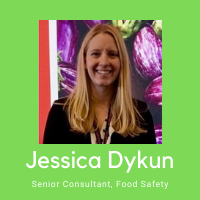
Jessica Dykun, Senior Consultant
Jessica is a Senior Consultant with more than a decade of experience working in the food and beverage industry, with particular expertise in food safety and quality assurance (FSQA). Jessica has lent her expertise on a variety of KTL food projects over the past several years; we are happy to welcome her as a KTL employee. Jessica is certified in HACCP and Lean Six Sigma and as an FSSC Lead Auditor. Read her full bio… jdykun@kestreltellevate.com | 724-544-8416
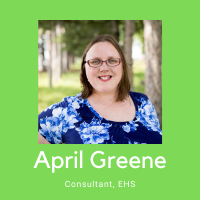
April Greene, Consultant
April is an experienced EHS professional with a demonstrated history of working in the environmental services industry. She brings a strong chemistry and laboratory background to her work at KTL. She is particularly skilled in sustainability, data analysis, and analytical chemistry and has significant experience managing quality, facilities, safety, and regulatory compliance in a laboratory setting. Read her full bio… agreene@kestreltellevate.com | 608-799-2166
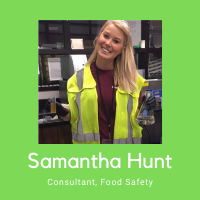
Samantha Hunt, Consultant
Samantha has a diverse background in the food and beverage industry, with particular expertise in food safety and quality assurance. Prior to joining KTL, she served in a variety of quality and lab management roles, with a specialized focus on beverage companies and fermentation science. Through her previous positions, Samantha has developed in-depth knowledge of FDA food safety regulations as they apply in laboratory, manufacturing, and packaging settings. Read her full bio… shunt@kestreltellevate.com | 828-470-8258
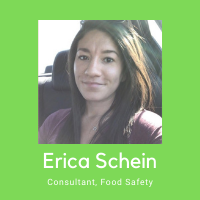
Erica Schein, Consultant
Erica has a strong background working in the food safety and quality control environment. She excels at researching and conducting programs to manage food safety requirements and ensure overall safety. Through her previous positions, Erica has developed in-depth knowledge of FDA and USDA regulations as they apply to a leading wholesale distribution center. She has in-the-field experience managing the daily operations of a highly effective and compliant food safety program. Read her full bio… eschein@kestreltellevate.com | 773-456-5210

Comments: No Comments
Staff Spotlight on Liz Hillgren
Get to know our KTL team! This month, we are catching up with Senior Consultant Liz Hillgren. Liz brings over 20 years of environmental experience in both industry and consulting to the KTL team. She is based in Ann Arbor, Michigan.
Tell us a little bit about your background—what are your areas of expertise?
My background is in hazardous waste. I worked for transfer, storage, and disposal facilities (TSDFs) for 20 years. I have worked at a landfill, a stabilization facility, a fuel blender, a used oil recycler, and a wastewater treatment facility. I have managed technical groups but also customer service throughout my career in industry.
What types of clients do you work with? What are the biggest issues you see them facing right now?
My KTL customers are largely manufacturing facilities. Most of them are mid-sized, so they don’t always have tons of money—but they do have real regulatory issues.
What would you say is a highlight of your job?
I like to help my customers solve problems, because I feel like I am part of their team. I also like to learn new things—my job always has something new to think about.
What do you like to do in your free time?
I am a gardener, and I enjoy being outside. I live in an old house full of projects and potential. I like to sew. I just started beekeeping, so that is currently where all my time and money are spent!
Read Liz’s full bio.

Comments: No Comments
Join KTL Virtually at ChemEdge 2020
NACD’s 2020 ChemEdge is making the shift to full virtual this year. The conference may look a little different, but it is still filled with all the critical knowledge and networking opportunities chemical distributors expect from ChemEdge.
ChemEdge 2020
Tuesday, September 1 – Thursday, September 3
Register Now!
As always, KTL will be an active participant in ChemEdge 2020. Be sure to join KTL Senior Consultant and Responsible Distribution Adviser Jake Taylor for the following presentations:
+ Digging Up the Roots! Root Cause Analysis Review and Exercise
Tuesday, September 1, 11:00 am-12:15 pm
+ OSHA Top 10 List
Wednesday, September 2, 9:00 am-10:00 am
We look forward to making the most of this virtual event and hope many of our clients and friends will be joining us at ChemEdge 2020 this September.

Environment / Kestrel Tellevate News / Safety / Technology Enabled Business Solutions
Comments: No Comments
KTL Renews Agreement to Provide Access to EHS Regulatory Question Modules
KTL is pleased to announce that we have renewed our agreement with the Construction Engineering Research Laboratory (CERL) of the U.S. Army Corp of Engineers, which provides access to the following regulatory question modules:
- The Environmental Assessment and Management (TEAM) Guide and the related state supplements address environmental compliance in the areas of air quality, cultural and natural resources, hazardous materials and waste, pesticide management, pollution prevention, energy conservation, petroleum, oils and lubricants, storage tanks, solid waste management, toxic substances, water quality, and more.
- The Occupational Safety and Health (OSH) Guide is used in assessing compliance with the standards of the Occupational Safety and Health Administration (OSHA). It may also be used in combination with an agency-specific safety and occupational health manual. The OSH Guide is based on OSHA regulations from Title 29 of the Code of Federal Regulations.
KTL originally entered into this agreement with CERL in 2015. CERL’s experts are dedicated to conducting ongoing research, updating federal and state environmental and federal safety regulatory requirements, and developing and maintaining standardized audit checklists for those regulations. These checklists are very comprehensive; are used by auditors for DOD, DOE, DOI, and other federal agencies; are updated regularly to reflect any regulatory changes; and cover virtually all of the functions that would be present in a broad mix of industrial companies.
Our agreement allows KTL to make the TEAM Guide and OSH Guide available through an electronic format (i.e. dynaQ™). KTL staff can use these modules to stay current on changing federal regulations. The question modules bring a basis of significant credibility related to the reliability and completeness of audit content via a software tool that manages audit data and makes finding information more efficient. With this agreement, KTL remains one of the only professional service firms in the country to offer access to the following regulatory question modules.

Comments: No Comments
Staff Spotlight on Roberto Bellavia
Get to know our KTL team! This month, we are catching up with Senior Consultant and Partner Roberto Bellavia. Roberto has been with KTL for three and a half years and is based in the Chicagoland area.
Tell us a little bit about your background—what are your areas of expertise?
I was born and raised in Rome, Italy. I have a master’s degree in animal production science and started my career in Italy working on the farming side of the food supply chain. I was working with farmers that had small manufacturing operations for cheese, salami, meat, and I was doing food safety (HACCP) plans for them. I also worked in a couple of dairy farms.
I first came to the U.S. in 1999 for a genetic research project at the University of Minnesota on mapping of chromosome 29 in bovine. I moved to the U.S. permanently in 2001, when I got married. I worked at the Italian Chamber of Commerce, made connections, and started working for Turano Pastry Shop as Production Manager. I learned Spanish before I learned English! I wanted to move back into the meat industry, so I began working at Chiappetti Lamb and Veal in the Stockyards District in Chicago, the last federal-inspected plant in the city. When they closed, I moved to U.S. Foods as the Director of Food Safety for the Stockyards brand.
I joined the consulting world at KTL in January 2017. My areas of expertise revolve around food safety, quality, and regulatory compliance. I am well-versed on all the GFSI schemes (i.e., FSSC22000, SQF, BRC, IFS) and the USDA – FSIS and FDA requirements. In this role, I really enjoy working with different people. There is no reporting structure in my team; rather, it is about people working together to achieve the same objectives. I am in the business of food safety. I believe that people always want to do the right thing, but sometimes they need someone to tell them what the right thing is or to show them how to get there.
What types of clients do you work with? What are the biggest issues you see them facing right now?
All my clients are in the food supply chain—from food manufacturing, to food additives and food packaging, to distributors and importers. I also work with a company in the dietary supplement arena, which is an area with growing food safety requirements.
Data management is one of the biggest challenges facing my clients right now. How do you collect and use data, while also protecting information? Every company needs to fulfill someone else’s requirements (e.g., regulatory, standards, customers, supply chain) by submitting information, auditing, reviewing, and assessing and allocating levels of risk. Our clients look to KTL to help them meet those needs.
Training and culture change are two other large areas where food companies rely on KTL’s expertise. When a company decides to pursue a major change in their food safety program, they also need help in culture change and much of that starts with training.
Lastly, the new rules of the FDA – FSMA have been a challenge, including implementing allergen control, environmental, and food defense/intentional adulteration programs.
What would you say is a highlight of your job?
I get to be 100% involved in what I do. I always seek the highest results and take pride in everything I do. It is important to me to show my clients the value they get from working with KTL, and what we have accomplished once our project is done. We are currently focusing a lot of our expertise on data management and predictive analytics, developing dashboards that allow our clients to see in real time the performance of the food safety programs we are developing. It is very satisfying to see those results.
What do you like to do in your free time?
My free time is about my wife, my three kids, and my dog. When I don’t work, I enjoy spending time home. I like to coach soccer and have been a coach for over eight years. I enjoy a home-cooked meal (because I travel and eat out a lot), spending time at the beach (but that never seems to happen), and playing cornhole (a/k/a bean bags). I also like motorsports, so when I can (and when COVID is not cancelling half of the season), I enjoy watching Formula 1 racing (there is something about technology, courage, and teamwork that is fascinating) and European football (a/k/a soccer).
Finally, I enjoy road tripping with the family—or just driving alone—and discovering and seeing something new. I have been in three different Portlands in the U.S.! I feel that every place I go, no matter how remote or rural it is, has something interesting for me to see.
Read Roberto’s full bio.

Comments: No Comments
KTL Announces Partnership with German Company Martin Mantz
KTL is pleased to announce our partnership with Martin Mantz Compliance Solutions (Martin Mantz), developer of the GEORG Compliance Management System® software. KTL is providing regulatory compliance expertise to the German-based company as it expands its offerings to clients with operations in the United States.
“Martin Mantz has created something unique with the GEORG software in that it simplifies and provides an interpretation of legal and technical requirements in a customer-specific database,” KTL Principal Lisa Langdon states. “KTL’s understanding of industrial operations, as well as U.S. legal and technical requirements (e.g., EPA, OSHA, FDA, ISO), allows us to translate these requirements into simple tasks in the GEORG system that employees can follow to help fulfill regulatory requirements.”
How GEORG Works
GEORG is used to make the requirements of standards and regulations comprehensible and transparent. KTL specializes in the practical mapping of legal requirements and audits. These audits allow KTL to create technical content for the GEORG system based on facility-specific applicability. We then work directly with the company to delegate the identified tasks. If there are revisions in the standards/regulations, KTL works in the system to ensure tasks are updated to meet regulatory requirements.
The benefits of this approach include:
- Effectiveness – All tasks are assigned, easily formulated, and regularly updated.
- Efficiency – The effort and expertise required to understand complicated regulations is reduced.
- Transparency – Responsibilities are clear and easily visible to all employees.
- Conformity – Compliance status within the system reflects the degree of fulfilment of the related requirements.
Faber-Castell Expands GEORG Implementation to U.S. Subsidiary
Faber-Castell Cosmetics, an internationally renowned Martin Mantz customer with worldwide operations, is already benefitting from the Martin Mantz-KTL partnership. After successful implementation of the GEORG software in their German facilities, Martin Mantz has worked with KTL to expand usage to Faber-Castell’s subsidiary in the U.S.
About Martin Mantz Compliance Solutions
Martin Mantz Compliance Solutions, based in Grosswallstadt and Leipzig, Germany, offers its contractual partners services in the area of legal organization (GEORG) of companies to avoid organizational negligence and compliance violations. This includes consulting and provision of the compliance software GEORG Compliance Management System®, implementation of the technical and legal modules, as well as construction and maintenance of the customer-specific database. https://www.martin-mantz.de/
About Kestrel Tellevate LLC
KTL is a multidisciplinary consulting firm that specializes in providing environmental, health, and safety (EHS) and food safety management and compliance consulting services to private and government clients. Our primary focus is to build strong, long-term client partnerships and provide tailored solutions to address regulatory requirements. KTL’s services include management system development and implementation, auditing and assessments, regulatory compliance assistance, information management solutions, and training. KTL is a Small Business Administration-registered company with headquarters in Madison, WI and Atlanta, GA and offices across the Midwest and Washington, D.C. www.kestreltellevate.com
